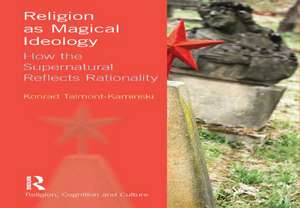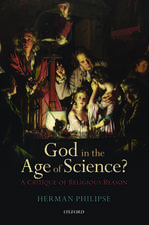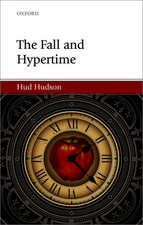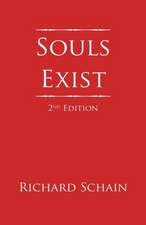Religion as Magical Ideology: How the Supernatural Reflects Rationality: Religion, Cognition and Culture
Autor Konrad Talmont-Kaminskien Limba Engleză Hardback – 30 apr 2013
Preț: 763.81 lei
Preț vechi: 1102.55 lei
-31% Nou
Puncte Express: 1146
Preț estimativ în valută:
146.17€ • 152.04$ • 120.67£
146.17€ • 152.04$ • 120.67£
Carte tipărită la comandă
Livrare economică 14-28 aprilie
Preluare comenzi: 021 569.72.76
Specificații
ISBN-13: 9781844656448
ISBN-10: 1844656446
Pagini: 172
Dimensiuni: 156 x 234 x 23 mm
Greutate: 0.43 kg
Ediția:1
Editura: Taylor & Francis
Colecția Routledge
Seria Religion, Cognition and Culture
Locul publicării:Oxford, United Kingdom
ISBN-10: 1844656446
Pagini: 172
Dimensiuni: 156 x 234 x 23 mm
Greutate: 0.43 kg
Ediția:1
Editura: Taylor & Francis
Colecția Routledge
Seria Religion, Cognition and Culture
Locul publicării:Oxford, United Kingdom
Cuprins
Preface 1 Introduction 2 Superstitious reeds 3 The superempirical 4 Magic as cognitive byproduct 5 Religion as magical ideology 6 Religion as Ancestral trait Bibliography Index
Descriere
'Religion as Magical Ideology' examines the relationship between rationality and supernatural beliefs arguing that such beliefs are products of evolution, cognition and culture.



















